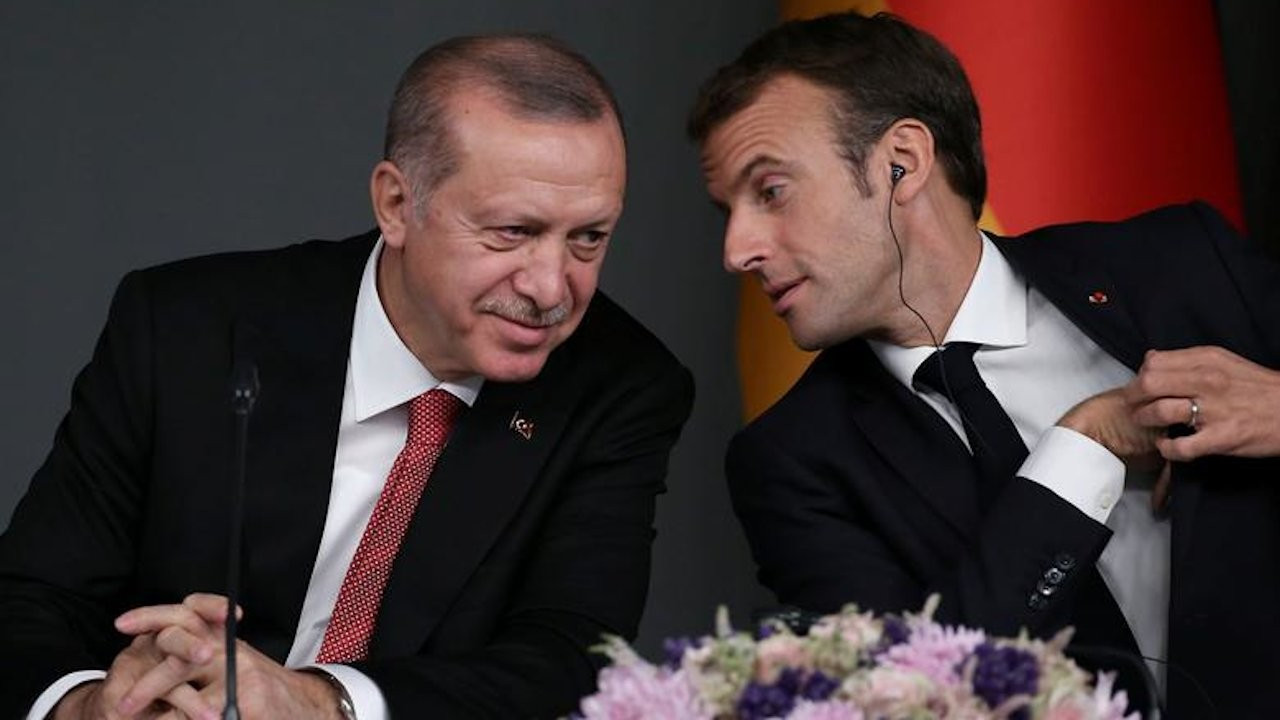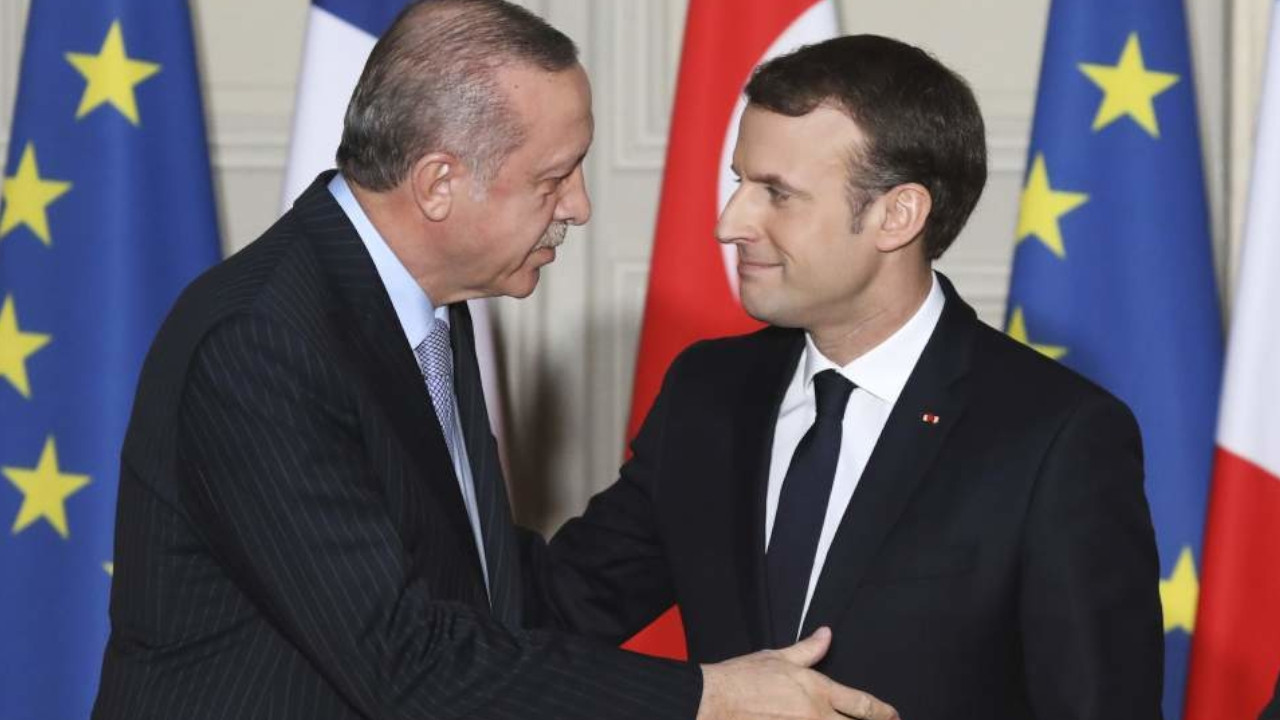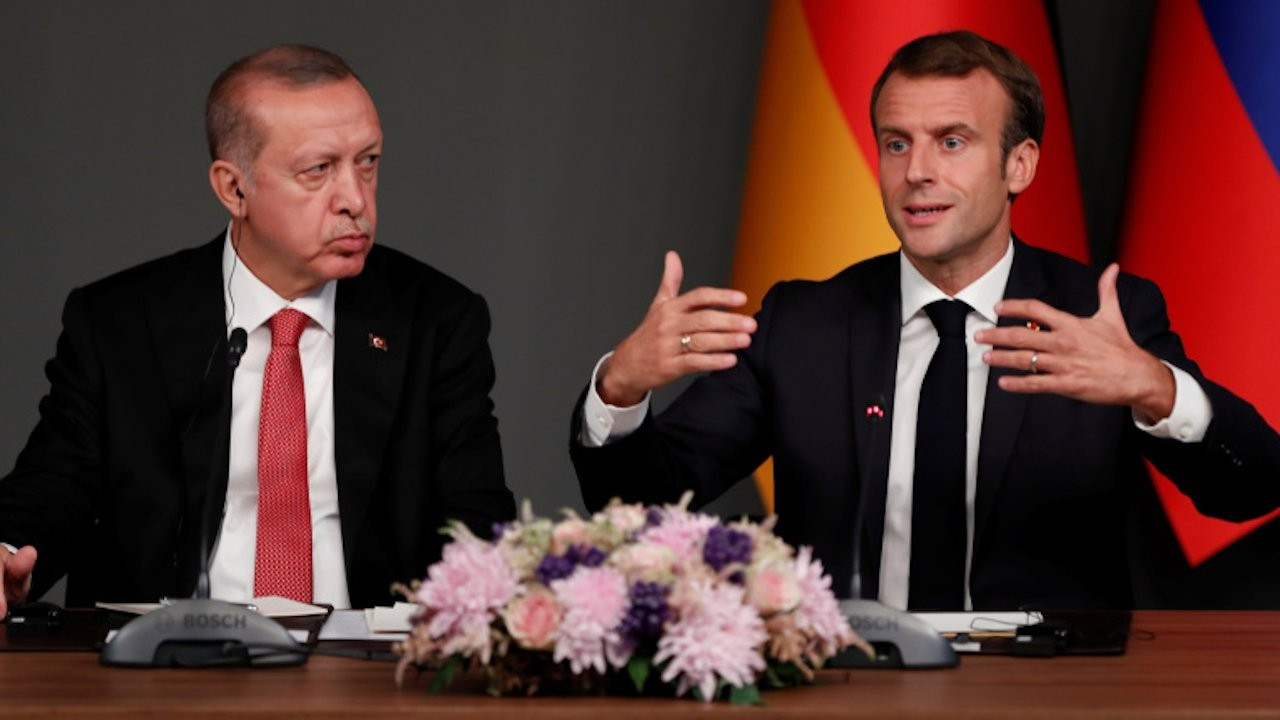Macron says Turkey has plans to try and sway French elections
French President Emmanuel Macron has said that Turkey has plans to influence the upcoming French elections. Macron noted that Turkey would be “playing on public opinion," likely a reference to its hold over parts of the Turkish diaspora via schools, mosques and other organizations.
Duvar English
French President Emmanuel Macron expressed concern that Turkey will attempt to influence the upcoming French elections.
“The threats aren’t veiled, so I think that we must be very lucid,” Macron said on March 23 in an interview with France 5 television, Bloomberg reported.
Ties between Macron and Turkish President Recep Tayyip Erdoğan have been tense over issues ranging from religion to energy exploration in the eastern Mediterranean, but they exchanged letters in January and agreed to try and mend ties. On March 2 they followed up with a video call.
Macron didn’t explain how Turkey might attempt to interfere with French elections -- or whether he was referring to regional elections in June, the presidential ballot in 2022, or both. He said only that Turkey would be “playing on public opinion.” It was likely a reference to its hold over parts of the Turkish diaspora via schools, mosques and other organizations.
The French leader tried to couch his comments by saying dialogue with Turkey remains necessary.
He pointed out that NATO member Turkey is a major trading partner and a key ally in the fight against illegal migration into Europe from the Middle East. “If you say overnight: We can’t work with you anymore, no more discussions, they open the doors and you have 3 million Syrian refugees arriving in Europe,” Macron said. “We must work with Turkey.”
France doesn’t collect statistics on religion or ethnicity so it’s hard to gauge how many citizens might be inclined to do Erdoğan’s bidding, if indeed it’s his intention to meddle. Either way, the number would likely be negligible.
As Macron starts to campaign for re-election, he’s been focusing on issues related to Islam and security in an attempt to woo voters who might be thinking of backing far-right leader Marine Le Pen. Because Erdoğan seeks to be the champion of Sunni Islam, this has brought the two leaders into conflict, and both Erdoğan and Macron have played up disputes for domestic audiences.
During the 2017 presidential elections, Macron accused Russia of hacking his party servers and spreading disinformation. France’s National Cybersecurity Agency ANSSI concluded that the breach could have been carried out by anyone, but authorities in the U.S. said much later that Russian state-backed hackers were responsible. Russia denies the charge.
European leaders will discuss the relationship with Turkey during a summit later this week. Last year, after the situation in the eastern Mediterranean escalated, the European Union threatened Turkey with sanctions.
Macron said Erdoğan should make it clear whether he’s with his NATO allies or against them.
“I have noted since the beginning of the year a willingness on the part of President Erdoğan to re-engage in the relationship, and so I want to believe that this path is possible,” Macron said. “But we cannot re-engage if ambiguities remain.”

 Turkey has stopped insulting us, but action still needed, France saysDiplomacy
Turkey has stopped insulting us, but action still needed, France saysDiplomacy Erdoğan tells Macron that Turkish-French cooperation has 'very serious potential'Diplomacy
Erdoğan tells Macron that Turkish-French cooperation has 'very serious potential'Diplomacy 'Dear Tayyip': Macron, Erdoğan exchange letters, agree to resume talksDiplomacy
'Dear Tayyip': Macron, Erdoğan exchange letters, agree to resume talksDiplomacy